Featured
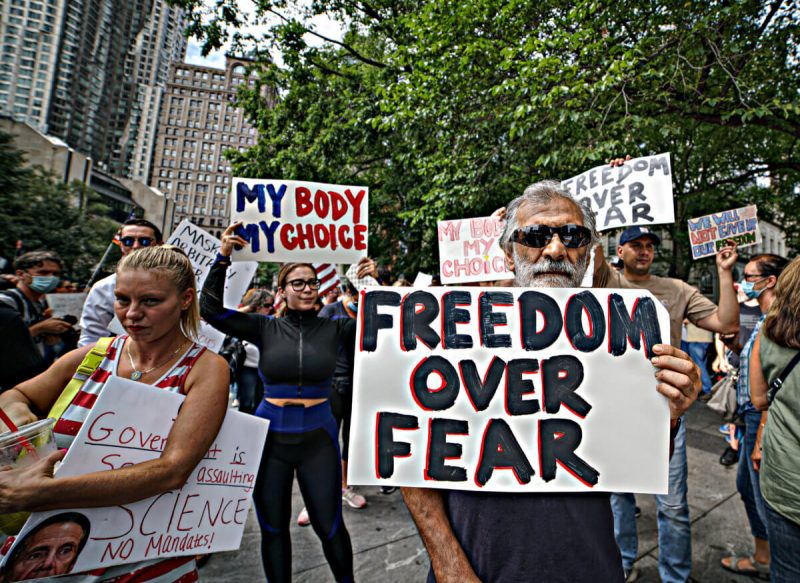 Why Covid Death Rates Are Rising for Some Groups. By Denise Lu and Albert Sun / NYT
Why Covid Death Rates Are Rising for Some Groups. By Denise Lu and Albert Sun / NYT
The overall rate of Covid-19 deaths has declined since vaccines became widely available in April, yet nearly a quarter million people in the United States have died from the virus in the past eight months. The virus is now responsible for a higher share of deaths from all causes for younger Americans and white Americans than it was before all adults were eligible for vaccines.
The change in death rates among groups is starker by race and ethnicity, and the death rate has risen particularly sharply for middle-aged white people. Covid-19 now accounts for a much larger share of all deaths for that group than it did before vaccines were widely available. White people are now less likely than Asians and Hispanics to be vaccinated, though somewhat more likely than Black people, and their death rates have risen in all but the oldest age groups. Read more
Related: Covid vaccine and mask mandates expose alt-right Christian hypocrisy. By Maggie Siddiqi / NBC News
Political / Social
 Trump’s MAGA movement suffered in 2021 — but has big comeback plans for 2022. By Heather Digby Parton / Salon
Trump’s MAGA movement suffered in 2021 — but has big comeback plans for 2022. By Heather Digby Parton / Salon
Current polling shows that Trump managed to convince tens of millions of Americans that the election was stolen and his hardcore followers are still as rabidly enthusiastic about Trump himself as they ever were. Trump voters dug in their heels and staged ongoing tantrums, threatening public health officials and school administrators who were trying to keep people safe during the pandemic and harassing election officials to say the election was stolen. They refused to get vaccinated, resulting in hundreds of thousands of unnecessary COVID deaths, instead putting their faith in the kind of snake oil cures Trump pushed relentlessly when he was president. Read more
Related: White supremacist propaganda is difficult to combat, but there’s hope. By Will Carless / USA Today
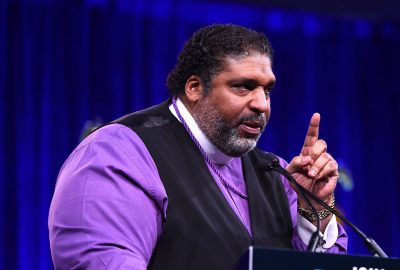 Poor People’s Campaign, progressive members of Congress vow to fight on for BBB. By Sarah Anderson / Salon
Poor People’s Campaign, progressive members of Congress vow to fight on for BBB. By Sarah Anderson / Salon
In a defiant Christmas Eve press rally, the Poor People’s Campaign and other progressive leaders vowed to continue to fight for the Build Back Better Act, despite opposition from West Virginia Sen. Joe Manchin. “Sen. Manchin is playing a Caesar or at least a King Herod in today’s Christmas story,” said the Rev. Dr. Liz Theoharis, a co-chair of the Poor People’s Campaign. “He’s saying there’s no room in this democracy for the 140 million poor and low-income Americans, including the 700,000 West Virginians who’ve been locked into poverty and low wages under his watch. He wants to limit poor children’s lives just so he can hold on to his power and wealth. On Christmas Eve, doesn’t this indeed sound like Herod?” Read more
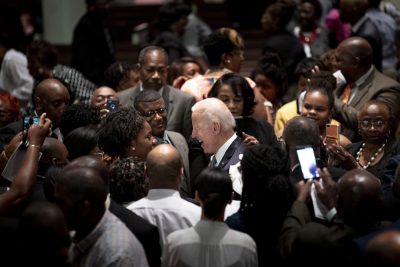 Black voters were key to Biden’s 2020 win. What did they think of his first year? By Curtis Bunn / NBC News
Black voters were key to Biden’s 2020 win. What did they think of his first year? By Curtis Bunn / NBC News
Biden’s approval among Black Americans remains higher than among voters more broadly. According to a Politico/Morning Consult poll of 1,998 voters released this month, 58 percent of Black respondents said they approved of the job Biden was doing as president, compared to 43 percent of all voters. However, Biden’s approval among Black voters has been sliding throughout the year. A poll by HIT Strategies showed that 48 percent of Black voters said in November that Biden was addressing their needs, compared to 66 percent of respondents in June. The poll reported a margin of sampling error of 3.1 percentage points. Read more
 Top Florida newspaper knocks Gov. Ron DeSantis for fear-mongering “critical race theory” bill. By Bob Brigham / Raw Story
Top Florida newspaper knocks Gov. Ron DeSantis for fear-mongering “critical race theory” bill. By Bob Brigham / Raw Story
Florida’s Republican governor was blasted for being a “reactionary and authoritarian” liar in a hard-hitting Christmas Day editorial published by the South Florida Sun Sentinel. “Remember the boogeyman, that specter your parents invoked to make you behave? Almost every culture has one. So do politicians when they want to create fear. Gov. Ron DeSantis has a boogeyman for the people of Florida. It is a real thing known as critical race theory — a discipline taught at some colleges but not in Florida public schools,” the newspaper explained. “The governor wants nonetheless to ban it from schools and, for good measure, from the human resource policies and sensitivity training courses of privately owned businesses. That is not conservative; it is reactionary and authoritarian.” Read more
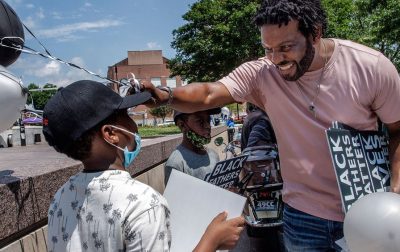 Where Are Black Parents’ Voices on Critical Race Theory? By Kali Holloway / The Nation
Where Are Black Parents’ Voices on Critical Race Theory? By Kali Holloway / The Nation
Black parents overwhelmingly support teaching about race and racism in school. Why aren’t we hearing from them?
In September, a staggering 83 percent of parents support the teaching of “critical race theory” in schools. Or to be more specific—because they are never granted modifier-free descriptors, as their white peers are—83 percent of Black parents are in favor of CRT in their children’s schools. In a USA Today/Ipsos poll, 71 percent of Asian parents and roughly 60 percent of Hispanic parents said CRT should be part of the curriculum in their children’s schools. Read more
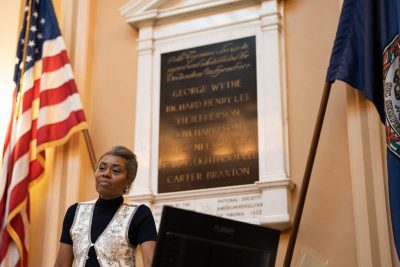 ‘I Look Like the Strategy’: Winsome Sears Wants Black Voters to Rethink the G.O.P. By Campbell Robertson / NYT
‘I Look Like the Strategy’: Winsome Sears Wants Black Voters to Rethink the G.O.P. By Campbell Robertson / NYT
The incoming lieutenant governor of Virginia was an unlikely candidate: a deeply conservative Black woman, and an immigrant, who supports Donald Trump.
The focus on Ms. Sears’s triumph, in news profiles and in the post-election crowing of conservative pundits, has been on the rare combination of her biography and politics: a Black woman, an immigrant and an emphatically conservative, Trump-boosting Republican. “The message is important,” Ms. Sears, 57, said over a lunch of Jamaican oxtail with her transition team at a restaurant near the State Capitol. “But the messenger is equally important.” Read more
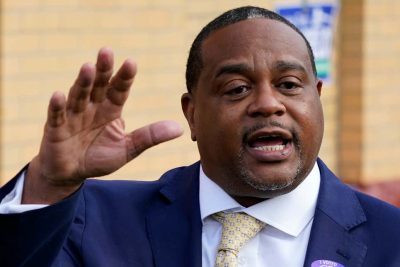 It’s a YouTube Inauguration for Pittsburgh’s First Black Mayor. By Keith Reed / The Root
It’s a YouTube Inauguration for Pittsburgh’s First Black Mayor. By Keith Reed / The Root
Ed Gainey’s transition team announced on Tuesday that his swearing-in will now be viewable to the public via YouTube, but in-person festivities marking his installation were scrapped as a result of a surge in coronavirus cases, the Pittsburgh Post-Gazette reports. In May, Gainey, a Democrat, won Pittsburgh’s general election, making him the first Black mayor-elect in the city’s 205-year history as well as putting him in the rare position of being Black while occupying the highest elected municipal office in a majority-white city. Pittsburgh’s population has dwindled by more than half since 1950; only 23 percent of its current 302,971 residents are Black. Read more
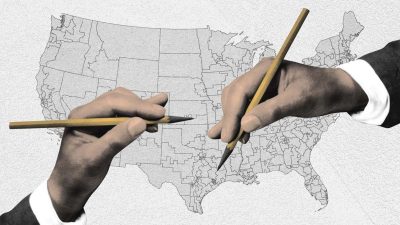 Challengers say ‘race blind’ redistricting maps are anything but. By Tierney Sneed / CNN
Challengers say ‘race blind’ redistricting maps are anything but. By Tierney Sneed / CNN
In states like Texas and North Carolina, Republican lawmakers in charge of redrawing the political maps for the next decade say that the new plans are “race blind.” Their opponents in court say that the claim is implausible and one that, in some situations, is at odds with the Voting Rights Act. Several lawsuits, including from the Justice Department, allege that the maps drawn after the 2020 census discriminate against voters of color. Read more
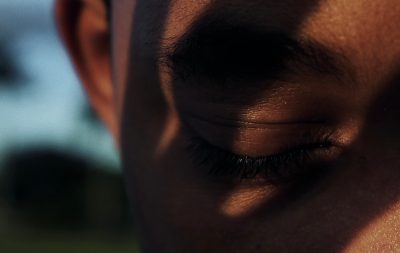 Why Are More Black Kids Suicidal? A Search for Answers. By Christina Caron / NYT
Why Are More Black Kids Suicidal? A Search for Answers. By Christina Caron / NYT
Mental health experts assumed that people of all races had the same risk factors for self-harm. Emerging evidence suggests that is not the case.
Joe was 17 when he decided life wasn’t worth living. He was tired of the violence in his Boston neighborhood, where his older brother had spent more than a year recovering from a gunshot wound to his leg. And he was especially tired of the comments about his weight. “You think you can sit on that chair?” his classmates would ask. Other times they were more direct, saying simply: “You’re fat.” “Sometimes I’d be so depressed I wouldn’t eat for three days,” said Joe, now 25, who was a lineman on his high school’s football team. Read more
Related: One reason for the homicide crisis: Young people in pain. By Dwayne Bray / The Undefeated
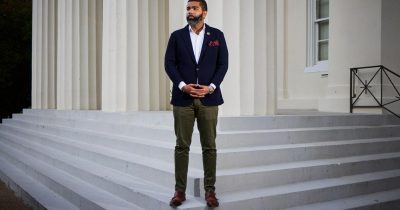 How a state capital became one of the deadliest US cities. By Peter Nickeas and Priya Krishnakumar / CNN
How a state capital became one of the deadliest US cities. By Peter Nickeas and Priya Krishnakumar / CNN
In the state’s most populous city, Jackson, Mississippi, a former Confederate stronghold that would later give way to thriving Black business districts and serve as a hub for the Civil Rights movement in the 1960s, residents are now grappling with a gun violence epidemic that spiked at the onset of the Covid-19 pandemic and shows no signs of abating. “We see lifelong friends kill each other, we’ve seen a son kill his mother and sister, have seen crimes that are based on social determinants and an inability of people to be engaged in institutions in which they thrive,” Jackson Mayor Chokwe Antar Lumumba told CNN during a tour of the city. Read more
Related: The White DA, the Black ex-mayor and a harsh debate on crime. By Cleve R. Wootson Jr. / Wash Post
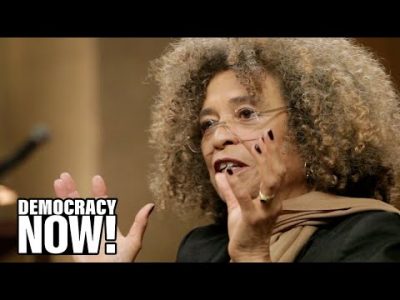 Angela Davis on Imagining New Worlds, the Campaign to Free Mumia and the Biden Presidency. By Amy Goodman / Democracy Now
Angela Davis on Imagining New Worlds, the Campaign to Free Mumia and the Biden Presidency. By Amy Goodman / Democracy Now
World-renowned author, activist and professor Angela Davis talks about navigating the pandemic and an inadequate two-party political system during a time of racial uprising in the United States. She also talks about imprisoned journalist Mumia Abu-Jamal, the Biden presidential campaign and the protests that erupted from the police killing of George Floyd and Breonna Taylor. Listen or read here
 For Black families, is selling Grandma’s house the right choice? By Laurel Wamsley / NPR
For Black families, is selling Grandma’s house the right choice? By Laurel Wamsley / NPR
To Fred Brown, the sale of his grandmother’s house was a big mistake. That’s the home where he grew up with his grandmother, parents and four siblings in the Columbia Heights neighborhood of Washington, D.C. His grandmother bought the house in 1960 for under $7,000. After she died, Brown says his father wanted his aunts to help pay the taxes on the house. “I guess they didn’t want to pay it, so they had a big dispute. And you know, they just wind up selling it,” he says. The house was sold in 2015, and its new owner renovated it and split it into two units, selling each for more than Brown’s family had made on the whole thing. Read more
 Asian Americans have the biggest wealth gap. Here’s how they’re helping one another this year. By
Asian Americans have the biggest wealth gap. Here’s how they’re helping one another this year. By
Asians in the U.S. have the greatest wealth gap of any ethnic group, according to a 2018 report by the Pew Research Center. Those in the top 10 percent of income distribution earn almost 11 times as much as those at the bottom, a disparity that rapidly took shape from 1970 to 2016. The average household income for Asians in 2019 was around $85,000. But without picking it apart, that figure paints an incomplete picture. Indian families in the U.S., the highest earners under the umbrella, make $119,000 a year on average. Burmese families represent the other end of the spectrum, with just $44,000 a year coming in. Bangladeshis like Jahan, concentrated in New York, have a median household income of $59,500. Read more
Related: Two Asian American women appointed deputy mayors of N.Y.C. By Kaur / NBC News
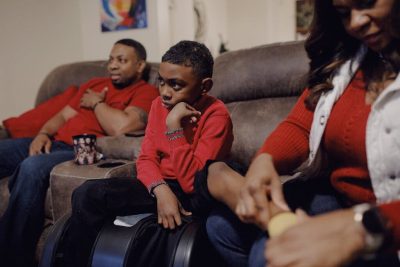 Sickle Cell Math Is Brutally Simple, but Not Widely Taught. By Gina Kolata / NYT
Sickle Cell Math Is Brutally Simple, but Not Widely Taught. By Gina Kolata / NYT
An inexpensive blood test can warn couples if they face one in four odds of having a baby with the disease. No one ever told Lametra Scott and Rickey Buggs about it.
No doctor ever counseled Lametra Scott and her husband, Rickey Buggs, to get a simple blood test that would have warned them they each carried a mutated gene that — if inherited from both — would cause sickle cell disease in their baby. It was only after a routine blood test around week 16 of her pregnancy that she learned she had the gene. Mr. Buggs, honorably discharged from the Marines around the same time, was informed upon leaving that he, too, was a carrier. Read more
Ethics / Morality/ Religion (New)
 Where Is the Forgiveness and Grace in Cancel Culture? By Michael Eric Dyson / NYT
Where Is the Forgiveness and Grace in Cancel Culture? By Michael Eric Dyson / NYT
The words of the Rev. Anthony Thompson in 2015 were all but unthinkable to many Americans, after the ghastly crime that led to his proclamation. “I would just like him to know,” Mr. Thompson said, “I forgive you, and my family forgives you.” His wife, Myra Thompson, was one of nine Black worshipers gunned down in Charleston, S.C., at the historic Emanuel African Methodist Episcopal Church by a white supremacist, Dylann Roof. Two days after the murders, at Mr. Roof’s bond hearing, Mr. Thompson and several other surviving members of the victims’ families offered their forgiveness. The effect was extraordinary: This act of grace eclipsed Mr. Roof’s delusional hope for a race war that he meant to ignite with the killings. Read more
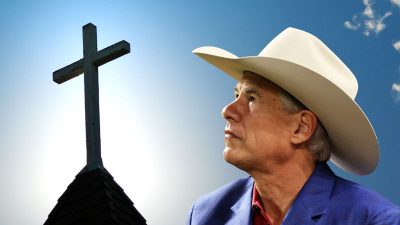 How extremist Christian theology is driving the right-wing assault on democracy. By Paul Rosenberg / Salon
How extremist Christian theology is driving the right-wing assault on democracy. By Paul Rosenberg / Salon
“Christian reconstructionism is the merger of a distinct brand of Calvinism with Austrian School economics,” Tabachnick said. “In other words, it’s an interpretation of the Bible grounded in property rights.” The results have been far-reaching:
For more than 40 years, its prolific writers have provided the foundations and strategic blueprints for the attacks on liberation theology and the social gospel, as well as many other streams of Christianity which do not share the Reconstructionists’ belief in unfettered capitalism as ordained by God and its fierce anti-statism. The larger religious right’s attack on public education, the social safety net and most government functions are largely grounded in the writings, strategies and tactics formulated by reconstructionist writers. Reconstructionism is not the only (and certainly not the first) source of interposition and nullification in this country. However, much of what is currently being taught today about using interposition to undermine the legitimacy of government is sourced in reconstructionism. Shown is Texas Governor Greg Abbott Read more
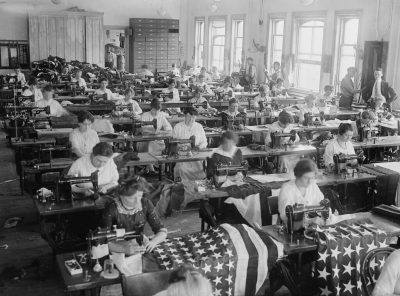 Who Gets to Define What It Means to Live? By Nick Romeo / NYT
Who Gets to Define What It Means to Live? By Nick Romeo / NYT
The idea of a living wage is an old dream, with origins in the work of thinkers as ideologically diverse as Adam Smith, St. Thomas Aquinas and Karl Marx. While its exact meaning is often left conveniently vague, Theodore Roosevelt offered a basic definition in a 1912 speech: A living wage should let workers “secure the elements of a normal standard of living,” including education, recreation, child care, a cushion for periods of sickness and savings for old age. Roosevelt was making a moral claim, not just an economic one. He saw paying workers enough to meet these basic standards as a matter of justice. Read more
 The Fierce Love of the Rev. Dr. Jacqui Lewis. By Laura Flanders / The Nation
The Fierce Love of the Rev. Dr. Jacqui Lewis. By Laura Flanders / The Nation
Middle Collegiate Church burned down, but its senior minister says the global response showed how “the theory of fierce love is actually practiced in real life.”
Lewis is senior minister of Middle Collegiate Church in Manhattan’s East Village. In her latest book, Fierce Love: A Bold Path to Ferocious Courage and Rule-Breaking Kindness That Can Heal the World, she weaves together autobiographical anecdotes with theological reflections and practical tools to show what underlies and inspires change. Read more
Historical / Cultural
 Last Known Slave Ship Is Remarkably Well Preserved, Researchers Say. By Michael Levenson / NYT
Last Known Slave Ship Is Remarkably Well Preserved, Researchers Say. By Michael Levenson / NYT
In 2019, a team of researchers confirmed that a wooden wreck resting off the muddy banks of the Mobile River in Alabama was the Clotilda, the last known ship to bring enslaved people from Africa to the United States. Now, the researchers say they have made another startling discovery: The wreck is remarkably well-preserved. As much as two-thirds of the original structure remains, including the hold below the main deck where 110 people were imprisoned during the ship’s final, brutal journey from Benin to Mobile in 1860. Read more
 The Fight to Remember the Black Rebellion at Igbo Landing. By Remenda Cyrus / Mother Jones
The Fight to Remember the Black Rebellion at Igbo Landing. By Remenda Cyrus / Mother Jones
In 1803, 75 West Africans, many of them Igbo people from what is now Nigeria, were sold for $100 each to John Couper and Thomas Spalding. They were packed like cargo onto the slave ship the Morovia (or the York; accounts vary). Their fate was excruciatingly obvious, and the only answer was a rebellion. The Igbo overpowered the ship’s captain and killed some of his crew, and the ship ran aground in Dunbar Creek. The Igbo made a conscious decision. They knew that a life of agony and horror awaited them, so they decided to walk into the water. In most oral retellings of what happened, they sang, “By the water spirits we came and by the water spirits we will be taken home,” as they walked into the creek, still chained to each other. Read more
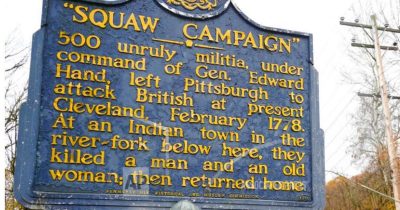 New venue for revised look at U.S. racism’s history: roadside markers. CBS News
New venue for revised look at U.S. racism’s history: roadside markers. CBS News
Pennsylvania had been installing historical markers for more than a century when the racist violence in Charlottesville, Virginia, in August 2017 brought a fresh round of questions from the public about just whose stories were being told on the state’s roadsides – and the language used to tell them. The increased scrutiny helped prompt a review of all 2,500 markers by the Pennsylvania Historical and Museum Commission, a process that has focused on factual errors, inadequate historical context, and racist or otherwise inappropriate references. So far, the state has removed two markers, revised two and ordered new text for two others. Read more
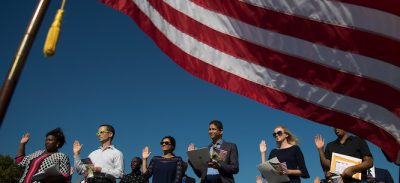 How the Hart–Celler Act Changed America. By Ruth Milkman / Dissent
How the Hart–Celler Act Changed America. By Ruth Milkman / Dissent
The 1960s effort to end discriminatory quotas sowed the seeds of the political conflicts over immigration that are still with us today.
Historian Sarah R. Coleman’s careful study of the dynamics of immigration politics, The Walls Within, exposes both the forces driving the immigrant threat narrative and the shifting political alignments shaping immigration policy in the 1970s, ’80s, and ’90s. Coleman’s account begins with the passage of the 1965 Hart–Celler Act, which defined the fundamental structure of employment- and family-reunification-based immigrant admissions that exists to this day. Yet as Coleman notes, “few of the bill’s supporters or opponents anticipated that the legislation would result in . . . a transformed population of unprecedented diversity.” Indeed, upon signing the bill into law, Johnson confidently declared, “It will not reshape the structure of our daily lives.” Read more
 I’m Invited to a Destination Wedding at a Plantation. What Do I Do? By Kwame Anthony Appiah / NYT
I’m Invited to a Destination Wedding at a Plantation. What Do I Do? By Kwame Anthony Appiah / NYT
A friend’s daughter has sent my family an invitation to her upcoming “Plantation Wedding” in a Southern city. I had been looking forward to attending until I became aware of the appalling and tragic history of this estate and gardens. I am deeply troubled by the thought of celebrating on the grounds where hundreds of men, women and children were bought and sold, enslaved and tortured, so that white people can enjoy the privilege of a fairy-tale wedding. Read more
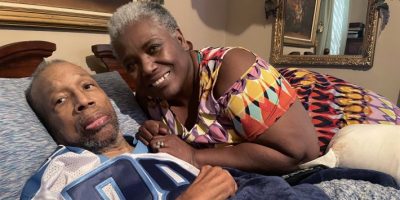 Black-owned hospice focuses on end-of-life disparities. By Blake Farmer / NPR
Black-owned hospice focuses on end-of-life disparities. By Blake Farmer / NPR
Mary has been the primary caregiver for her husband, but she gets help from a new hospice agency in Nashville that is focused on increasing the use of comfort care at the end of life by Black families. Heart and Soul Hospice is owned and operated by people who share the same cultural background as the patients they’re trying to serve. In their application to obtain a certificate of need in Tennessee, the hospice owners made it clear that they are Black and that they intend to serve everyone but will focus on African Americans, who are currently underserved. Tennessee data show that in Nashville, just 19% of the hospice patients are Black though they make up 27% of the population. Read more
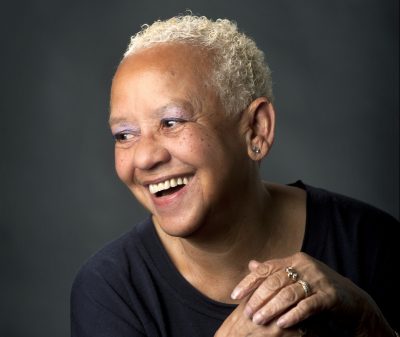 Nikki Giovanni Has Made Peace With Her Hate. By David Marchese / NYT
Nikki Giovanni Has Made Peace With Her Hate. By David Marchese / NYT
“The door is open,” Nikki Giovanni told me, “and if I’m saying something that you don’t like, you can go out the door. Because I’m going to say what I think I should say.” The poet and longtime Virginia Tech professor, who will soon release “The Gospel According to Nikki Giovanni,” a musical collaboration with the saxophonist Javon Jackson, was talking about her approach to teaching difficult material. She could just as well have been talking about her approach to life. Beginning with her first book, “Black Feeling, Black Talk” in 1968, and on through to “Make Me Rain” in 2020, Giovanni’s writing has expressed a great many forceful ideas — about love, race, politics, gender — but a large share of its power has always come from the sense that the poet is telling the truth as she sees it, to whoever happens to hear. “I cannot close my door,” says Giovanni, who is 78. “I just can’t let that happen.” Read more
 From Cornel West to Nikole Hannah-Jones, Black intellectuals take over MasterClass. By
From Cornel West to Nikole Hannah-Jones, Black intellectuals take over MasterClass. By
Cornel West has achieved renown as a professor, philosopher, historian, intellectual and political activist. Now, he’s one of seven pre-eminent Black thought leaders exploring the topic of race through MasterClass, the streaming platform where famous experts teach subscribers an array of subjects, all virtually. The three-part class, titled “Black History, Black Freedom, and Black Love,” launched in December, and will continue with two more installments in 2022. “This class is historic,” West said in a phone interview. “It is unprecedented to have voices at this level coming together to define American history, modern history and the Black experience.” Read more
Sports
 Naomi Osaka, Simone Biles and the enduring sports message of 2021. By Kevin B. Blackstone / Wash Post
Naomi Osaka, Simone Biles and the enduring sports message of 2021. By Kevin B. Blackstone / Wash Post
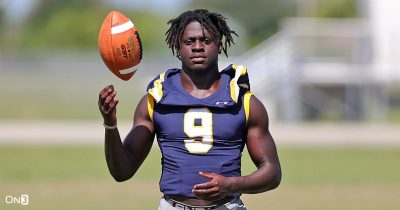 Richard Young, No. 1-ranked 2023 RB, planning to visit an HBCU soon. By Andrew Ivins / 247 Sports
Richard Young, No. 1-ranked 2023 RB, planning to visit an HBCU soon. By Andrew Ivins / 247 Sports
Lehigh (Fla.) Senior 2023 five-star running back Richard Young is still piecing together his winter/spring travel plans, but it sounds like at least two schools will for sure get a visit from him at some point over the next few months. Young told 247Sports last week that he plans to check out both Penn State and Florida A&M once. Read more
Site Information
Visit our home page for more articles, book/podcast and video favorites. And at the top of this page register your email to receive notification of new editions of Race Inquiry Digest. Click here for earlier Digests.
About Race Inquiry and Race Inquiry Digest. The Digest is published on Mondays and Thursdays.
Use the buttons below to share the Digest in an email, or post to your Facebook, Linkedin or Twitter accounts.